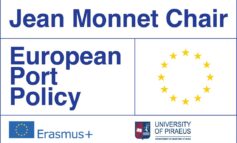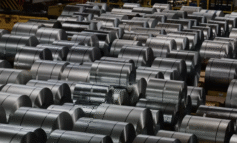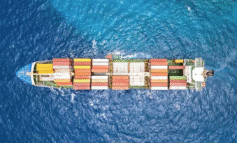Download PortReport No 5 – Transparency in governance: seaport practices
PortReport No 5 explores the levels and standards of transparency in the governance of ports. Key actors in port governance, such as government departments involved in port policy-making, port authorities, and port regulators need to be transparent about their behavior, policies, and practices as a way of enhancing economic performance and accountability to their stakeholders, particularly the community that hosts the port. The report explores the availability of information to the general public and port stakeholders through the ports most public face—its website and examines key transparency indicators used at public ports in North America, Europe, and South America. The constructed database includes 87 ports, 23 in the United States (U.S.), 17 in Canada, 21 in South and Central America and the Caribbean (LAC), and 26 in Europe.
This exploratory investigation centered on identifying the parameters that would be useful for the general public to have sufficient information to monitor, review and, in many cases, participate in the decision-making process carried out by the port authority, irrespective of whether or not laws mandate such disclosure. Fifty-one items were identified for the examination of each port’s website, focusing primarily on four major categories: decision-making governance, port communications and accessibility, transparency in reporting, and transparency in port operational activities. Beyond reporting the findings, and regional variations, with respect to each of these 51 items, nine have been selected as potential proxies that might serve as key indicators for recording and monitoring the evolution of port transparency levels over time.
The research of PortEconomics members Mary R. Brooks, Geraldine Knatz, Thanos Pallis and Gordon Wilmsmeier reveals uneven levels of port transparency, as well as the need for further improvements in that transparency. At a practical level, the study reveals a need for increasing the existing levels and standards of transparency in the governance of the port industry, and for greater consistency between ports within a region. The analysis also provides details on those aspects where port transparency is satisfactory. The report concludes with a research agenda for future research in this field.
PortReport is a PortEconomics series designed to disseminate studies on port economics, policy, and management to a wider readership. Studies included in the series contain original, unpublished research and are subject to approval by the editorial team, with authors retaining copyright of the published work. The opinions expressed and arguments employed herein do not necessarily reflect official views of the PortEconomics team. The content might be reproduced subject to citation of the original source. PortReport studies are published regularly and are freely available electronically on the PortEconomics webpage under “PortReport”. To read previous issues of PortReport visit: www.porteconomics.eu/portreport.
Photo: Seshu-b/ Unsplash












